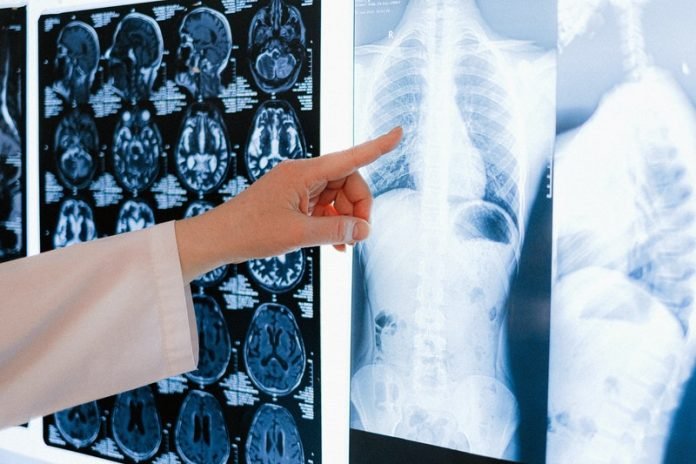
In a new study from Amsterdam University, researchers found that a deep learning algorithm accurately predicts the risk of death from heart disease using information from low-dose CT exams performed for lung cancer screening.
Heart disease is the leading cause of mortality worldwide. It even outpaces lung cancer as the leading cause of death in heavy smokers.
Low-dose CT lung scans are used to screen for lung cancer in high-risk people such as heavy smokers.
These CT scans also provide an opportunity to screen for cardiovascular disease by extracting information about calcification in the heart and aorta.
The presence of calcium in these areas is linked with the buildup of plaque and is a strong predictor for cardiovascular disease mortality, heart attacks and strokes.
Previous studies have used information extracted from CT images as well as other risk factors, such as cholesterol levels and blood pressure, and self-reported clinical data, such as the history of illness.
In the study, the team tested a faster, automated method that can predict five-year cardiovascular disease mortality with the only minimal extra workload.
The method draws upon the power of deep learning, an advanced type of artificial intelligence (AI). The team used data from 4,451 participants who were about 61 years old and underwent low-dose CT over a two-year period.
The researchers trained the method to quantify six types of vascular calcification. They then tested the method on data from 1,113 participants.
They found new predictors that are typically not described in the literature, possibly because they performed an analysis in lung cancer screening participants who are already at high risk of cardiovascular disease from a history of heavy smoking and the presence of extensive arterial calcification.
The method could easily be integrated into lung cancer screening. It does not require any special equipment and would not add time to the exam.
Most importantly, the method could help identify people in a population of heavy smokers who might be at increased risk of death from cardiovascular disease-related causes.
The researchers have developed a number of methods for automatic calcium scoring that can be applied to a wide variety of data.
The study is published in Radiology: Cardiothoracic Imaging. One author of the study is Bob D. de Vos, Ph.D.
Copyright © 2021 Knowridge Science Report. All rights reserved.



